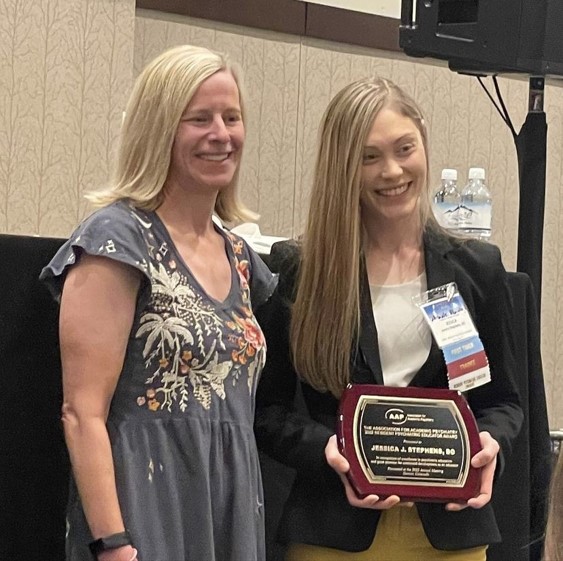Mission
The Respect, Responsibility and Equity in Medicine (RREM) residency curriculum was first launched in the 2020-21 academic year for the Department of Psychiatry residency and fellowship programs at Western Psychiatric Hospital within the University of Pittsburgh Medical Center. This novel curriculum is aimed at creating a longitudinal experience that addresses racism and sources of inequity within medicine and psychiatry. This curriculum educates trainees about the history and roots of racism and inequity, while also addressing the current impact of racism and inequities on their own practice.

Over this four-year curriculum, residents and fellows learn about the social constructs of race and inequity, gain awareness about specific systemic contributors in medicine and psychiatry, develop skills allowing them to serve as allies and advocates for patients and within our professional communities, and foster an ability to pass along their knowledge to fellow trainees and colleagues. By the end of their training, residents and fellows will have gained confidence in practicing fully equitable, responsible and respectful psychiatry with all of our patients and communities.
Structure
RREM is part of the standardized teaching curriculum for all psychiatry residents throughout the entirety of their training. The curriculum includes four foundational sessions for all new interns during orientation, and continues with monthly training sessions throughout PGY1, PGY2, PGY3, and PGY4. The hour-long RREM sessions take place monthly during protected time to ensure residents are able to fully engage, and are discussion based, interactive, often utilizing small groups.
As difficult topics are discussed, RREM sessions are kept confidential and consist of residents only to help ensure a safe space for sharing. Twice per year, the RREM hour is used to debrief on topics previously covered and elicit feedback from resident participants. RREM's steering and executive committees work to make sure the content of each session remains current.
To learn about other initiatives undertaken by our Department to enhance diversity, equity, and inclusivity, please visit our DEI page.
RREM Steering Committee
The RREM Steering Committee includes the Office of Residency Training and resident leaders. This committee meets weekly and drives the day-to-day progress of the RREM curriculum.
• Michael Travis, MD, Residency Training Director
• Meredith Spada, MD, Associate Training Director
• Sansea Jacobson, MD, Child Training Director
• Piper Carroll, MD, Assistant Professor of Psychiatry
• Jessica Stephens, DO, Chief Resident for Education, PGY-5
• C. Haley Walker, MD, Chief Resident for the Child Track, PGY-5
• Isabella Kratzer, MD, Vice Chair of the AACE Track, PGY-4
• Isaiah Crum, MD, PGY-3
RREM Executive Committee
The RREM Executive Committee is a larger group of faculty who work to support session creation and modernization.
• Kristen Eckstrand, MD, PhD, Assistant Professor of Psychiatry
• Morgan Faeder, MD, PhD, Assistant Professor of Psychiatry and Neurology
• Jessica Gannon, MD, Associate Professor of Psychiatry
• Jody Glance, MD, Associate Professor of Psychiatry
• Priya Gopalan, MD, Associate Professor of Psychiatry and Obstetrics, Gynecology and Reproductive Sciences
• Julia Macedo, MD, Assistant Professor of Psychiatry
• Robert Marin, MD, Associate Director, Center for Public Service Psychiatry
• Darcy Moschenross, MD, PhD, Assistant Professor of Psychiatry
• Sarah Pedersen, PhD, Associate Professor of Psychiatry and Psychology
• Justin Schreiber, DO, Assistant Professor of Psychiatry and Pediatrics
• Wesley Sowers, MD, Clinical Professor of Psychiatry
• Rameshwari Tumuluru, MD, Associate Professor of Psychiatry

